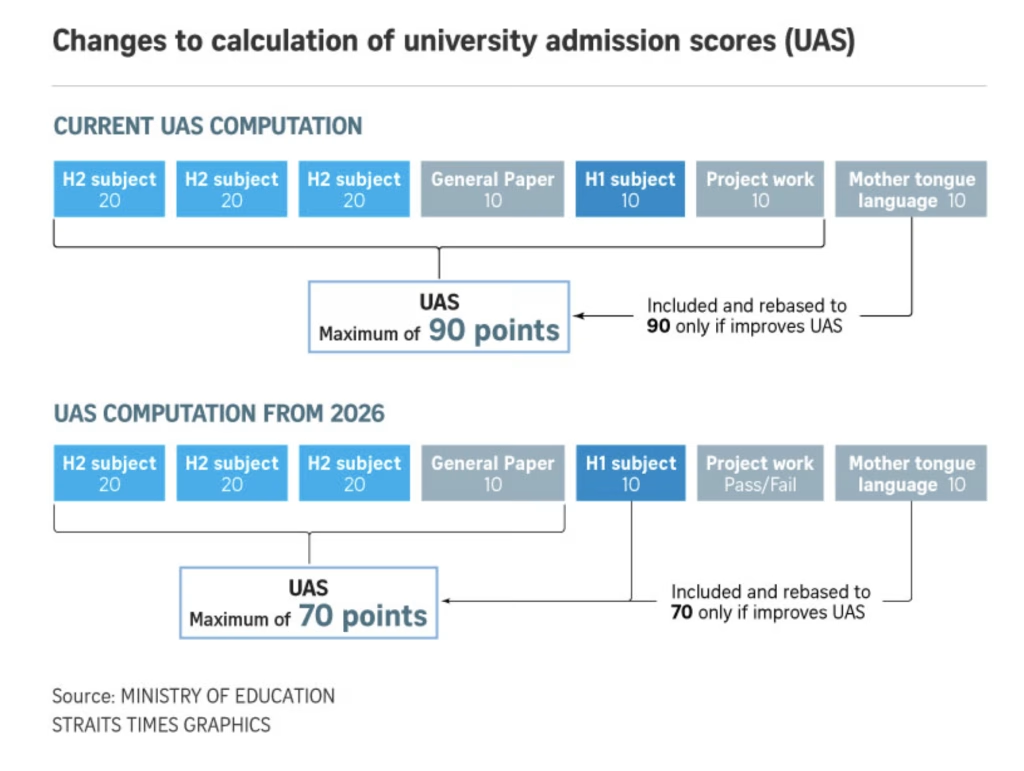Outline:
- Introduction
- Overview of the A-Level scoring system change
- Purpose of the article
- Understanding the A-Level Scoring System
- Previous 90-point system
- New 70-point system
- Reasons for the Change
- Objectives behind the scoring system revision
- Expected benefits for students
- Pros of Changing from 90 to 70 Rank Points
- Reduced academic pressure
- Encouragement of subject exploration
- Simplified university admissions process
- Cons of Changing 90 to 70 Rank Points
- Potential increase in competition
- Challenges in differentiating student performance
- Adjustment period for educators and institutions
- Impact on Students
- Changes in study habits
- Selection of subjects
- Stress levels and mental health
- Recommendations for Students
- Strategies to adapt to the new system
- Resources for academic support
- Tips for subject selection
- Conclusion
- Summary of key points
- Final thoughts on the scoring system change
Introduction
According to the Ministry of Education (MOE), Singapore’s A-Level examination framework is set to undergo a significant transformation, shifting from 90 to 70 Rank Points. This article delves into the rationale behind this change, its advantages and disadvantages, and the potential impacts on students, educators, and universities.
Understanding the A’level Scoring System
Traditionally, the A-Level scoring system in Singapore operated on a 90 rank points scale, assessing students across various subjects to derive a cumulative score. The revised system introduces a 70 rank points maximum, altering the weight and calculation of subject scores. Under the new system, the fourth content-based subject will only be included in the computation if it enhances the student’s overall University Admission Score. Additionally, the Project Work subject will transition to a pass-or-fail grading system from 2024 onwards.
Reasons for the Change
The Ministry of Education (MOE) aims to “rebalance” the overall curriculum load for students taking the A-Level examinations, lower the assessment stakes, and provide more time and space for students to pursue their interests. By simplifying the scoring system, the intention is to create a more balanced and holistic educational environment.
See the image below, credits to Straits Times.

Pros of Changing from 90 to 70 Rank Points
- Reduced Academic Pressure: With fewer subjects contributing to the final score, students may experience less stress and have more time to focus on their core interests.
- Encouragement of Subject Exploration: The flexibility to choose a contrasting subject without the pressure of it affecting the overall score allows students to explore diverse fields.
- Simplified University Admissions Process: A streamlined scoring system can make the university application process more straightforward, benefiting both applicants and admissions officers.
Cons of Changing from 90 to 70 Rank Points
- Potential Increase in Competition: With a lower maximum score, achieving top marks may become more common, potentially intensifying competition among students.
- Challenges in Differentiating Student Performance: Universities might find it harder to distinguish between applicants, leading to a greater emphasis on other factors like extracurricular activities.
- Adjustment Period for Educators and Institutions: Transitioning to a new system requires time and resources for training and curriculum adjustments.
Impact on Students
Students may need to adapt their study habits, focusing more on core subjects while exploring others without the pressure of grading. This shift could positively influence stress levels and mental health.
Recommendations for Students
- Adapt Study Strategies: Focus on core subjects while exploring others for personal growth. The new system allows more flexibility, so students should prioritize subjects that align with their strengths and university aspirations. More students may choose to focus on Math or STEM subjects as they are the more common prerequisite core subjects requirement for university.
Seek Support: Utilize school resources, consult teachers, and participate in study groups to stay ahead. Alternatively, signing up for tuition classes is a good option too. Given the potential for increased competition, strategic planning is essential.
Engage in Extracurricular Activities: Since universities may place more emphasis on holistic applications, students should build a strong portfolio through leadership roles, community service, and co-curricular activities.
Conclusion
The transition from a 90 to 70 rank points system in Singapore’s A-Level examinations brings both opportunities and challenges. While it aims to reduce academic stress and allow for subject exploration, concerns over competition and differentiation remain. Students and educators must adapt to these changes strategically, ensuring a smooth transition. Universities, in turn, may need to adjust admission criteria to maintain fairness.
This shift signifies a step towards a more holistic education system, but its success will depend on how well students, teachers, and institutions adapt to the evolving landscape.
FAQs
1. When will the new A-Level rank point system take effect?
The 70-rank point system will be implemented from the 2026 A-Level examinations.
2. How will this change affect university admissions?
Universities may revise admission criteria, potentially placing greater emphasis on holistic assessments, interviews, and extracurricular achievements.
3. Will the new system reduce academic pressure?
Yes, it is designed to lower assessment stakes and allow students more flexibility in subject selection. However, competition may increase as scores become more concentrated.
4. How should students prepare for this transition?
Students should focus on their strengths, seek guidance from educators, and engage in extracurricular activities to build a well-rounded portfolio.
5. Where can I find official information on this change?
You can refer to the Ministry of Education (MOE) website for official updates and announcements.







